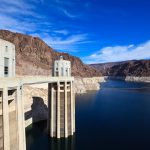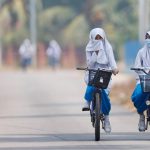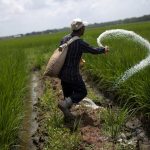The Guardian
‘Indigenous peoples are the best guardians of world's biodiversity’
Today is the United Nations’ (UN) International Day of the World’s Indigenous Peoples, numbering an estimated 370 million in 90 countries and speaking roughly 7,000 languages. To mark it, the Guardian interviews Kankanaey Igorot woman Victoria Tauli-Corpuz about the UN’s Declaration on the Rights of ...
China's ivory ban sparks dramatic drop in prices across Asia
The price of raw ivory in Asia has fallen dramatically since the Chinese government announced plans to ban its domestic legal ivory trade, according to new research seen by the Guardian. Poaching, however, is not dropping in parallel.Undercover investigators from the Wildlife Justice Commission (WJC) ...
Illegal Thai fishing hauls a possible threat to Woolworths sushi partner's supply
Thailand’s ‘ghost’ fishing fleet may have supplied contaminated seafood to Sushi Izu. Seafood caught by Thailand’s notorious ghost fishing fleet may have contaminated the supply chains of a sushi company operating in more than 165 Woolworths supermarkets. Guardian Australia can reveal that Woolworths and its fresh ...
Thai fishing industry: abuses continue in unpoliced waters, Greenpeace claims
An international crackdown on human rights abuses in the Thai fishing industry has resulted in vessels travelling thousands of miles further into remote and lawless waters, where trafficked men continue to be beaten and sold at sea, a 12-month Greenpeace investigation alleges. According to the ...
'An epochal change': what a Trump presidency means for the Asia Pacific region

From China and Japan to India and the countries of south-east Asia, leaders are being confronted by the unknowns of a new American president. Donald Trump’s victory has the potential to radically redraw the geopolitical landscape in Asia, where Barack Obama has been trying to counterbalance ...
The hydropower paradox: is this energy as clean as it seems?

In July, UN Secretary Ban Ki-Moon highlighted the role of hydropower in boosting the use of renewable energy globally, when he visited a nonprofit institute in China that helps emerging nations develop and build hydropower plants. Many countries consider hydroelectricity a clean source of power ...
300 million children live in areas with extreme air pollution, data reveals

Global study reveals huge number of children breathing toxic fumes more than six times over safe limits, while billions are affected by air pollution that exceeds guidelines. Three hundred million of the world’s children live in areas with extreme air pollution, where toxic fumes are more ...
Farming mega-mergers threaten food security, say campaigners

Deals would put the majority of seeds, chemicals and GM traits in the hands of three companies, deepening poverty for small-scale farmers. When an Indian farmer plants his cotton crop, there’s at least a 75% chance the seeds have been been bought from a company owned ...
More than half of south Asia's groundwater too contaminated to use – study

Salinity and arsenic affect 60% of underground supply across vast Indo-Gangetic Basin, according to research published in Nature Geoscience. Sixty per cent of the groundwater in a river basin supporting more than 750 million people in Pakistan, India, Nepal and Bangladesh is not drinkable or usable ...
Human-induced climate change began earlier than previously thought

Signs of warming appear as early as 1830 say researchers, whose analysis will help build accurate baseline of temperature before influence of human activity. Continents and oceans in the northern hemisphere began to warm with industrial-era fossil fuel emissions nearly 200 years ago, pushing back the ...

